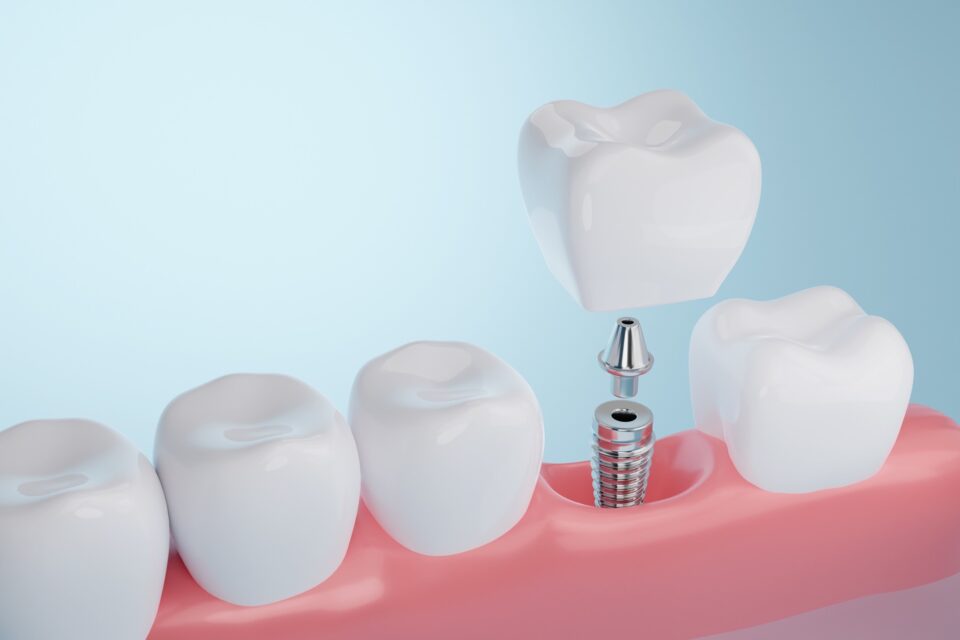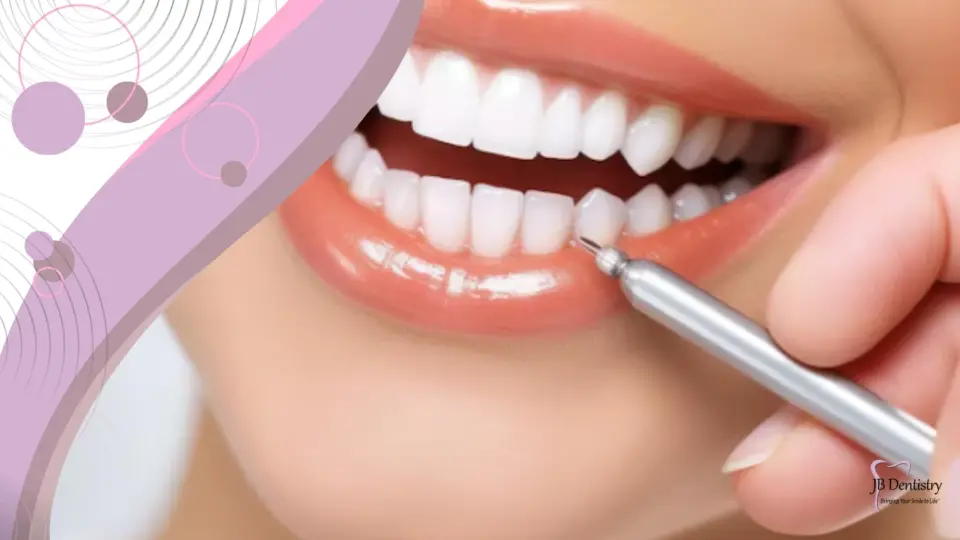Dental crowns are one of the most versatile tools in a dentist’s arsenal, used not only to improve the appearance of teeth but also to restore strength and functionality. If you are considering getting a dental crown or have been recommended by your dentist, here’s everything you need to know about this essential dental solution.
How Long Do Dental Crowns Typically Last?
The lifespan of a dental crown depends largely on the material used and how well it is maintained. Typically, crowns can last anywhere from five to fifteen years, but with meticulous care and regular dental check-ups, some crowns can last even longer, up to a few decades.
Factors such as your eating habits, oral hygiene practices, and even the location of the crown in your mouth play significant roles in determining how long your crown will last. Crowns placed in areas subjected to rigorous chewing, like the molars, may have a shorter lifespan compared to those placed on the less stressed teeth.
What Materials Are Used For Making Dental Crowns?
When considering a dental crown, the choice of material is crucial as it impacts not only the crown’s appearance but also its durability and functionality. Here’s a deeper look into the materials commonly used for making dental crowns, highlighting their unique attributes and ideal applications:
- Porcelain or Ceramic: These materials are favored for their superior aesthetic qualities. Porcelain and ceramic crowns are highly customizable and can be matched to the exact shade of your natural teeth, making them virtually indistinguishable from your original teeth. This makes them particularly suitable for front tooth crowns, where appearance is most crucial. Additionally, they are biocompatible, meaning they are gentle on the surrounding gum tissue.
- Gold and Metal Alloys: Crowns made from gold and metal alloys boast exceptional strength and resist wear well, making them ideal for the back teeth where the forces of chewing are greatest. These materials are less likely to chip or break compared to their ceramic counterparts. While their metallic color may be less aesthetically pleasing, their resilience makes them a practical choice for molars.
- Porcelain Fused to Metal (PFM): These crowns offer a blend of durability and natural appearance. The metal base provides strong support and structure to the crown, while the porcelain coating offers a natural-looking finish. This combination makes PFM crowns a versatile choice suitable for many patients, providing both strength and a pleasing aesthetic.
- Zirconia: As one of the toughest materials used in dental crowns, zirconia stands out for its exceptional durability and strength. It’s capable of withstanding the forces of biting and chewing without wearing down, making it an excellent option for both front and back teeth. Zirconia crowns can also be matched to the natural color of your teeth, combining aesthetics with functionality.
Each of these materials has distinct advantages and potential applications, depending on the specific needs and preferences of the patient. Your dentist will consider factors such as the location of the tooth, the function of the crown, the desired aesthetic outcome, and your overall dental health when recommending the best material for your situation. This tailored approach ensures that each crown not only fits perfectly but also looks great and lasts for many years.
Are Dental Crowns A Painful Procedure?
Many people worry that getting a dental crown might be a painful experience. However, the actual procedure is designed to be as comfortable as possible. Here’s a detailed look at what you can expect during and after the installation of a dental crown:
- Local Anesthesia: The procedure begins with the administration of local anesthesia, which numbs the tooth and surrounding tissues. This will make sure that neither the tooth preparation nor the crown fitting will cause you any discomfort. The numbing effect is localized, so you’ll be awake and aware, but free from discomfort in the affected area.
- Minimal Discomfort: Thanks to modern techniques and effective anesthesia, most patients experience little to no pain during the crown procedure. You might feel some pressure or vibration while the dentist works, but these sensations should not be painful.
- Post-Procedure Sensitivity: After the anesthesia wears off, it’s common to experience some sensitivity in and around the treated area. This sensitivity is typically mild and temporary. Your tooth may feel a little different or sensitive to temperature changes for a few days.
- Managing Discomfort: Any post-procedure discomfort can usually be managed effectively with over-the-counter pain relievers such as ibuprofen or acetaminophen. These medications help alleviate pain and reduce any inflammation.
- Follow-Up Care: It’s important to follow your dentist’s instructions for care after receiving your crown. This might include avoiding certain foods for a short time or specific cleaning instructions to ensure healing. Good oral hygiene practices are crucial to prevent irritation or infection.
- Communication with Your Dentist: If you experience ongoing pain or discomfort that seems to worsen, it’s important to contact your dentist. Persistent pain could indicate that adjustments are needed or, in rare cases, that there are complications such as an infection or a poorly fitted crown.
Overall, while the idea of getting a dental crown might seem daunting, the procedure itself is typically straightforward and low in discomfort. Dental professionals are skilled in techniques to minimize pain and ensure that your experience is as comfortable as possible.
How Do Dental Crowns Help In Strengthening Teeth?
Dental crowns serve a dual purpose: they strengthen and aesthetically improve broken teeth, and they also restore their functionality. A crown can shield and stabilize a tooth that is fractured, decayed, or has a big filling, stopping additional harm from occurring.
Crowns are shaped and sized to match your natural teeth, providing a strong, functional surface for chewing and biting. Additionally, by covering the entire visible portion of the tooth, a crown acts as a shield against further decay, infection, or damage.
Moreover, crowns are often used in conjunction with root canal therapy, which removes infected or injured pulp from the core of the tooth. After this procedure, a tooth can become brittle and prone to breakage. A crown provides the necessary support to keep the tooth intact and functional for years to come.
Understanding the benefits and procedures associated with dental crowns can help you make informed decisions about your dental health. Whether your goal is to restore a damaged tooth or improve your smile, dental crowns offer a reliable and long-lasting solution.
If you believe a dental crown might be right for you, consulting with a trusted dentist is the best way to get personalized advice and care tailored to your dental needs.
Why Choose Jaline Bocuzzi, DMD, PA // JBDentistry for Your Dental Crown Needs?
At Jaline Bocuzzi, DMD, PA // JBDentistry, we understand that choosing the right dental practice for your crown procedure is crucial. Our commitment to providing high-quality, patient-centered care makes us a standout choice in the community. Here’s why we believe we are your best option for dental crowns and comprehensive dental care.
Experienced Dental Professionals
Our team, led by Dr. Jaline Bocuzzi, consists of highly skilled dental professionals who specialize in restorative dentistry. With years of experience in the field, we are adept at performing dental crown procedures with precision and care. Our dentists regularly participate in continuing education courses to stay updated with the latest techniques and technologies in dental care, ensuring you receive the best treatment possible.
State-of-the-Art Technology
We use state-of-the-art dental equipment to make sure your treatment is painless, quick, and effective. Our clinic has state-of-the-art technology to address your needs, including digital X-rays that minimize radiation exposure and modern dental imaging tools for accurate crown fitting.
Personalized Care and Attention
At JBDentistry, we believe that every patient deserves personalized attention. We take the time to discuss all available options and help you choose the best solution for your dental health. Our goal is to help you achieve both short-term success and better dental health in the long run by tailoring a treatment plan to your specific circumstances.
A Welcoming and Comfortable Environment
We strive to make your visit as comfortable and stress-free as possible. Our office is designed to create a calming atmosphere, and our friendly staff is always ready to answer any questions you might have. We want you to feel at home each time you visit us for your dental care.
Frequently Asked Questions About Dental Crowns
What is the cost range for dental crowns at JBDentistry?
Depending on the material and the specifics of the surgery, the cost of dental crowns at our clinic usually falls between $800 and $1,500 per crown. To ensure that your treatment remains inexpensive, we provide multiple payment alternatives and are happy to help you navigate your insurance advantages.
How long will the appointment take?
A typical appointment for a dental crown procedure at JBDentistry can last between one and two hours. This includes the time needed to prepare the tooth, take impressions, and fit a temporary crown if necessary.
Can I eat normally after getting a dental crown?
After fitting a temporary crown, we recommend avoiding sticky or very hard foods to prevent it from coming loose. Once the permanent crown is installed, you can return to your normal diet, but it’s always best to avoid habits that could damage your crown, like chewing ice or biting fingernails.
Is there a warranty on dental crowns provided by JBDentistry?
Yes, we offer a warranty on dental crowns, covering any faults in materials or craftsmanship. The specifics of the warranty will be discussed during your consultation.
Ready to Improve Your Smile?
If you’re ready to discuss how a dental crown can help restore strength to your teeth and enhance your smile, contact us at Jaline Bocuzzi, DMD, PA // JBDentistry today. We are here to answer any questions and guide you through every step of the process.
Don’t wait to take the next step towards a healthier, more beautiful smile. For more information about dental crown services and to schedule a consultation, please call or visit our website. We are excited to assist you in achieving the smile of your dreams!


